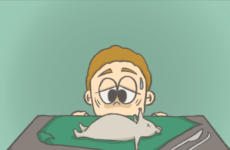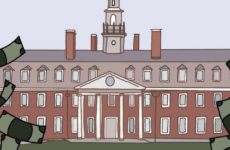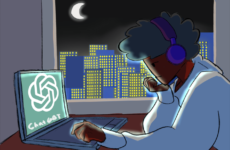At Choate, there’s a club for everyone: From groups that gather to write for a satirical magazine, to groups that meet to debate, to groups that simply meet to tell stories, there’s a place for everyone to get involved.
By themselves, each of these clubs stand for and serve noble causes. Each plays a significant role in the betterment of our community in some way; whether it be exposing students to ongoing issues happening in the world, acting as a platform for students to conduct meaningful discussions, or being a safe place for students to express their emotions, every club is its own rightful cog within the large machine that is Choate. To name a few, clubs such as Girl-Up and Spectrum meet to discuss societal problems and ways in which we should address these issues within our community.
Clubs are particularly important within the Choate community because students don’t have time built into their schedule to address the issues they care about. These are the only settings in which students can advocate for what they believe in.
Take, for example, Spectrum. Clumped together in the library reading room on the final evening of Ally Week at Choate were around 25 students who had convened to listen to the discussion of the meeting. Pioneered and discussed mostly by seniors, the conversation focused on LGBTQ+ policy and how our campus could collectively take action. The discussion, led by members from Spectrum and CDSA, sprang from the recent political controversy when the US voted against a UN resolution. The resolution called for states that have not yet abolished the death penalty to ensure that the punishment is not applied on the basis of discriminatory laws. This quickly evolved into a heterogeneous discussion centered around LGBTQ+ issues in general. It was a heated conversation, and frankly, it felt somewhat inspiring to belong to a community of such ardent thinkers.
The meeting, however, ended on a rather underwhelming note. When someone popped the question, “How should Choate address LGBTQ+ policy within its community?” only a few people piped up with ideas; even then, they seemed either quixotic or unlikely to receive any follow-up. Slowly, people filed out of the room, and I was left feeling disappointed that we had not come up with any plausible solutions to the many problems we had discussed. It seemed to me that once the conversation was over, no one really seemed interested in engendering any of the change they had just previously considered.
Herein lies the intrinsic problem of clubs: They’re great for holding discussions, but they’re never used for anything further. It’s important for students to discuss issues that they’re passionate about, but even more importantly, we need to recognize that these discussions need to be followed up with real action. More often than not, these conversations go to waste, when really, they should be used to enact some greater change.
Many viable solutions to the problem could be employed. Maybe advocacy clubs should be held to certain goals within set periods of time. Maybe clubs should collaborate to provide greater opportunities for their members. Maybe the entire system should altogether be rethought.
No matter how we choose to view clubs going forward, we must recognize the potential lying within clubs. Gatherings of students from across the world create such diverse communities, exemplifying a capability and zeal within the student body that cannot be overlooked. We have built a strong foundation in the formation of so many different clubs on our campus; now, it is our collective responsibility to harness the power we’ve amassed and truly devote it to the improvement of the world around us.




